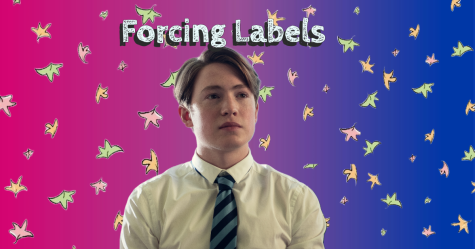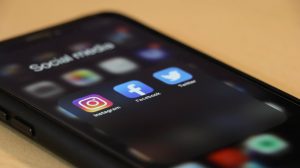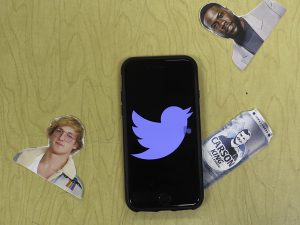Heartbreaker: Kit Connor and his forced coming out
While “Heartstopper” (2022) is praised for how open-minded it is about LGBTQ youth and discovering one’s identity, fans’ treatment towards star Kit Connor sends the exact opposite message.
November 7, 2022

Queerbaiting— the practice of implying non-heterosexual relationships or attraction (in a TV show, for example) to engage or attract an LGBTQ audience or otherwise generate interest without ever actually depicting such relationships or sexual interactions.
When “Heartstopper” first hit Netflix’s screens back in April 2022, the popularity was undeniable. This heartwarming coming-of-age love story between Charlie Spring, an openly gay student at an all-boys school, and Nick Nelson, the popular rugby player who befriends Charlie, resonated with audiences for its relatable portrayal of LGBTQ youth that kept to the original graphic novel’s soft storytelling. Everything about this show just hit the spot— diverse casting with significant representation regarding race and sexual/gender orientation, a soundtrack that highlighted famous queer artists, pleasant visuals that gave a “comic-book” feel to the story, everything. Even the fandom is a kind and open community with hardly any toxicity between its members. So it only makes the event that recently unfolded more of a disappointment.
Kit Connor, the 18-year-old English actor who plays Nick Nelson, has come forward with the admittance of feeling as though he has been forced to come out as bisexual ever since his starring role in the successful Netflix series. Until recently, Connor had generally been vague on his sexual orientation despite playing an openly bisexual teen, leading fans to speculate on their own. However, social media’s tendency to project actors’ popular roles onto the actors themselves only subjects said actors to online harassment when they don’t perfectly adhere to their characters. In a tweet written back in May, Connor referenced in a joking manner the constant assumptions and criticisms made about his sexuality which led to several accusations charging him with queerbaiting, only to come back with another tweet last Monday calling out to those who pressured him into coming out and saying they “missed the point of the show.”
And his words ring true. One of the more pivotal themes of the entire show was about how someone must first come to terms with how they identify before even considering opening up about themselves to others. Coming out of the closet may be a celebratory experience, but the closet itself is a safe space— the eggshell that the chick must work carefully to break out of before entering the world. So what’s the point of discovering your orientation when a label is forced upon you before you are ready? Unfortunately, this incident only makes Connor the most recent addition to the list of celebrities accused of queerbaiting.
Harry Styles, Billie Eilish, Rita Ora, Conan Gray, I could go on and on. While never explicitly going in-depth about their sexual preference, these celebrities constantly find themselves in the wrong spotlight due to people claiming that they purposely create a particular image for themselves that contain queer-like elements for the sake of receiving clout. Otherwise known as queerbaiting. Except there’s one slight flaw in these sorts of accusations; how on earth could an actual person queerbait?
Short answer— it’s not possible. Queerbaiting is a marketing term to describe products, like TV shows, not people. It’s entirely unreasonable to accuse a person of simply “faking it” just because they don’t fit your perception of what queerness is. Sexuality is fluid, and sometimes a simple label isn’t enough to describe them, so there’s nothing wrong with wanting to remain without one. In this society, heterosexuality is the standard. We are forced into this perspective that every person we meet is “straight unless proven otherwise,” so when someone identifies as anything other than “straight,” they somehow must prove themselves in order to appear as a qualified “queer.” There’s something to be said when a heterosexual person never has to clarify that they are in fact, heterosexual.
It is this entitlement some people feel towards others’ identities that are so damaging in the entertainment industry. Queerbaiting is an actual issue that should be confronted, but when it is tossed around without regard, especially when the actual definition is often misunderstood, it waters down any genuine arguments against it. Nobody owes you to define who they are explicitly, nor do they have to endure any criticism when they do just because they don’t fit the stereotypes we as people subconsciously build up in our heads. It cannot be referred to as “pride” when no one feels like they have the freedom to express who they are with or without labels.
This case is a prime example of learning how to separate the actor from the role. Connor was overwhelmed with the pressure of conforming to other people’s expectations of what it means to be bisexual, and with his career on the line, hovering over the threat of being canceled, his coming out story was more like a public execution rather than the success of an emotional journey. No empowerment of the individual took place, just a teenage boy trying to defend himself against those who believe they have a right to his own business. All we can look forward to now is hope that this incident brings an important conversation to the surface, and gives people the chance to think twice before sticking their noses into someone else’s business.









